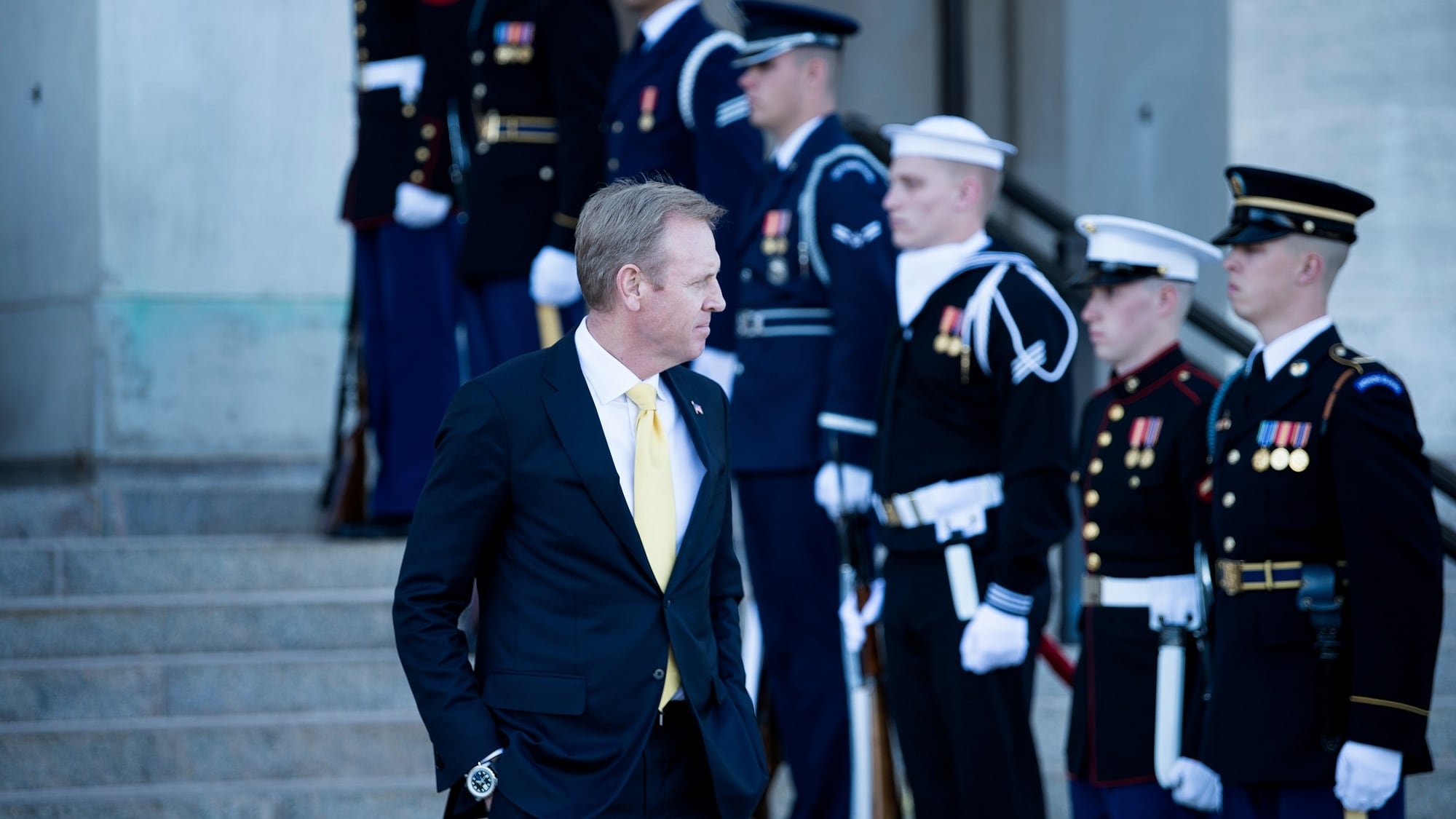WASHINGTON — When President Donald Trump announced Deputy Secretary of Defense Patrick Shanahan would become the acting secretary of defense, it created vibrations down the Pentagon chain of operations — suddenly leaving the top three spots at the department filled by acting individuals.
But functionally, does it matter?
Pentagon Comptroller David Norquist has been tapped to perform the duties of the deputy secretary, leaving deputy comptroller Elaine McCusker to fill Norquist’s day-to-day job. Meanwhile, the No. 3 in the department is supposed to be the chief management officer, but that job has been empty following the Nov. 9 resignation of Jay Gibson from that role; Lisa Hershman is currently the acting CMO.
Pentagon spokesman Lt. Col. Joe Buccino told reporters Friday that "Acting Secretary Shanahan will serve in this capacity at the pleasure of the President and consistent with governing law.” which, combined with recent comments by Trump, may be an indication the president is in no rush to replace the acting secretary.
The good news for the Department of Defense? Experts believe the department’s internal mechanisms will keep the building chugging along, at least in the short term. The more complicated news? Those tabbed with the “acting” label sometimes struggle with getting their way in that same bureaucracy.
RELATED

In terms of authorities, Shanahan should have no issue stepping into the secretary role, thanks to work that was done in the late 1980s through the Goldwater-Nichols reforms, says Arnold Punaro, a retired Marine Corps general who served as staff director in the Senate during the Goldwater-Nichols debates.
Goldwater-Nichols prepared for a “disability or vacancy in the SecDef position and put in statute the succession of the Deputy and the statute is clear that individual exercises the full powers of the SecDef,” Punaro wrote in an email. “So everything in DoD is now subject to the ‘authority, direction and control’ of Pat Shanahan.
“No one — adversary, ally, congress, American public, other members of the administration — should consider Pat Shanahan as a ‘caretaker’ or ‘hampered’ by the term ‘acting.’ He is, as we say in the Marine Corps, a ‘full up round.’ ”
Marc Cancian, a former Pentagon and Office of Management and Budget official now at the Center for Strategic and International Studies, agrees Shanahan legally has the full authorities. And more broadly, Cancian said, the other vacant or acting positions won’t matter as much if Shanahan is able to effectively drive the ship.
“I’m one of those people not too impressed by arguments about vacancies, if there is strong leadership at the top,” he said. But he points out that just because someone has power doesn’t mean that individual knows how to effectively use it, nor that everyone will listen. “The bureaucracy is just going to do its thing. It chugs along,” he added.
Cancian also wonders if Shanahan will be able to effectively convey the department’s message to Congress, particularly to Democratics, who now run the House of Representatives and are skeptical of defense spending increases.
And Loren DeJonge Schulman, a former Pentagon and National Security Council staffer now with the Center for a New American Security, says to watch carefully if Shanahan is effectively able to use the levels of power.
“In any instance where a DoD senior leadership role is held by someone with only temporary authority, you can be almost certain that they will lose every argument to anyone with bigger political, analytic or institutional guns,” Schulman said.
In particular, Schulman raises concerns about the civil-military divide, an issue that has been growing for years but one which experts worry has been exacerbated during the first two years of the Trump administration.
“With that being the case, it’s worth keeping an eye on how the Joint Staff and the services react to this new leadership dynamic, particularly given the sense that civilian oversight is waning in many instances,” she said. “With Shanahan’s lack of military and policy experience, I hope he finds strong advisers in [the Office of the Secretary of Defense] to help him manage what is going to be a crazy spring.”
One area that will be impacted by the shifting responsibilities, Cancian said, is the push for management reform.
“I think that is going to lose momentum” with the CMO spot empty and Shanahan and Norquist taking on bigger roles, Cancian predicted. “I don’t think it had much momentum to begin with, but whatever little momentum it had will be gone.
"Six months ago there was a lot of talk about management reform, but you don’t hear about any big changes that are in the wind. If they were working on something truly big, you would hear the screams from the Pentagon, which tells me whatever is coming is not going to be that big.”
Updated 1/4/19 at 10:45 AM EST with Buccino’s comment.
Aaron Mehta was deputy editor and senior Pentagon correspondent for Defense News, covering policy, strategy and acquisition at the highest levels of the Defense Department and its international partners.








